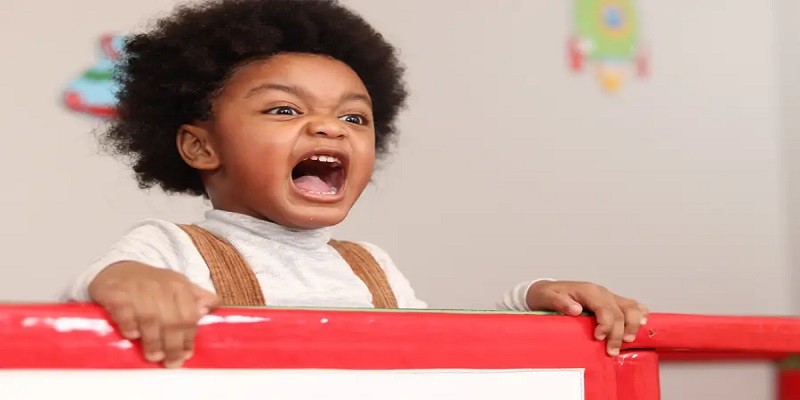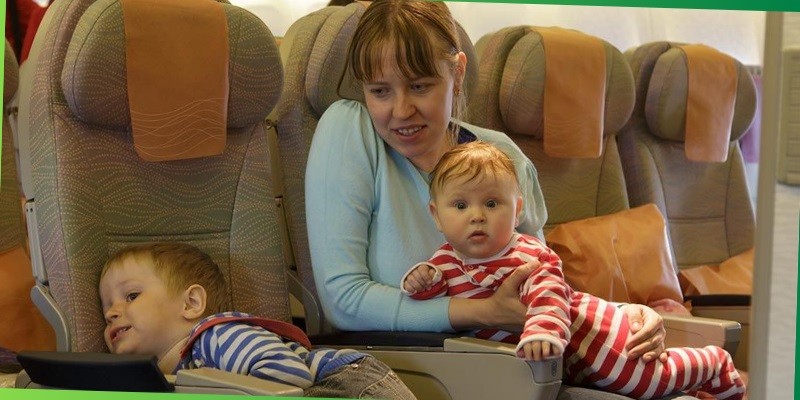Last Updated on January 15, 2025
Yes, in general, it is illegal for a landlord to evict a tenant because their child is noisy or plays outside. The law protects families from eviction due to their children’s normal noise and activities.
Landlords cannot penalize or give warning notices to families for their kids playing or making noise in common areas of the rental property. As a tenant, you have the right to allow your children to play and cannot be evicted for doing so.
It is important to know your rights as a tenant and understand that the law is on your side when it comes to noisy children.
The Legal Rights Of Families With Noisy Children
Noisy children are a natural part of family life, but what happens when your landlord threatens to evict you because of the noise they make? As a parent, it’s important to understand the legal rights that protect families in these situations. In this blog post, we will explore the background information on the legality of evicting families with noisy children, explain the concept of “Quiet Enjoyment” and its implications for eviction, and provide an overview of discrimination laws that protect families with noisy children. Let’s dive in and understand how you can protect your family’s rights.
Background Information On The Legality Of Evicting Families With Noisy Children
When it comes to evicting families with noisy children, it is crucial to be aware of the laws that protect your rights as a tenant. In general, it is illegal for a landlord to penalize, give warning notices, or evict families due to the fact that their kids play outside, make noise, run, ride bikes, throw balls, or play with toys in the common area of the apartment or condominium rental property. This is important information to keep in mind if you find yourself facing eviction threats due to your children’s normal activities. Consult your local tenant laws or seek legal advice to fully understand your rights in your specific jurisdiction.
Explaining The Concept Of “quiet Enjoyment” And Its Implications For Eviction
One key concept in tenant law is the notion of “Quiet Enjoyment.” Quiet Enjoyment refers to a tenant’s right to live in their rental property without unnecessary interference or disturbance from their landlord or fellow tenants. This means that as long as your children’s noise is within the normal range expected of young ones, your landlord cannot evict you solely based on your children being too loud. However, it is important to note that excessive noise or prolonged disturbances can be considered a breach of the Quiet Enjoyment term in your lease agreement.
It is always essential to communicate and find a reasonable balance between allowing your children to be themselves and respecting the rights of your neighbors. Open dialogue with your landlord can often resolve any disputes or concerns about noise levels, avoiding any potential eviction threats.
Overview Of Discrimination Laws Protecting Families With Noisy Children
Families with noisy children are safeguarded by discrimination laws that protect against unfair treatment in housing. These laws typically prohibit landlords from discriminating against families based on familial status, which includes having children. Landlords cannot single out families with noisy children and evict them solely based on their kids’ behavior.
Understanding these discrimination laws is crucial as they provide the necessary legal protection for families facing eviction threats. If you believe you are being unfairly targeted or discriminated against due to your children’s noise, it is crucial to gather evidence, such as written notices or witness statements. Seek legal advice immediately to ensure your rights are protected and to explore possible recourse under discrimination laws in your jurisdiction.
Families with noisy children have legal rights that protect them from wrongful eviction. By understanding the background information on the legality of evicting families with noisy children, grasping the concept of Quiet Enjoyment and its implications, and being aware of discrimination laws designed to protect families, you can confidently navigate challenging situations and protect your family’s right to a peaceful home.

Credit: blog.apartmentsearch.com
Factors Determining Eviction For Noisy Children
Eviction for noisy children is generally illegal, as landlords cannot penalize or evict families solely based on their children’s noise levels during play. The law protects families and their right to allow children to play without fear of eviction.
Discussion Of The Extent Of Noise Disturbance Required For Eviction
When it comes to eviction due to noisy children, the extent of noise disturbance required for such action largely depends on various factors. Landlords cannot penalize or evict families simply because their kids are being active and making noise during normal hours. In fact, it is illegal for a landlord to penalize or give warning notices based on such innocent child noises played in common areas of an apartment or rental property.
However, it’s important to note that excessive noise disturbances, such as continuous loud banging, screaming, or any disruptive activities that significantly impact the peace and quiet of fellow tenants, may be grounds for eviction. The determination of the threshold for eviction stems from the disturbance’s severity and its effect on the neighbors’ quiet enjoyment of the property.
Analyzing The Role Of Normal Kid Noises During Normal Hours
Normal kid noises made during normal hours are typically not grounds for eviction. Children are naturally active, and it is crucial for their growth and development to engage in play, run around, or create imaginative games. Landlords generally understand and acknowledge that children will make noise, especially during reasonable hours when most people are awake and active.
Normal kid noises may include laughter, chatter, occasional running, or even the sound of toys being played with. These noises are considered part of everyday life and are generally accepted by landlords and neighboring tenants. However, it’s important for parents to ensure that the noise levels remain within reasonable limits and do not excessively disturb other residents.
Exploring The Threshold For Noise Complaints Leading To Eviction
The threshold for noise complaints leading to eviction can vary depending on the specific circumstances and the rules set by the landlord or property management. In most cases, a single noise complaint may not be enough for eviction, especially if it falls within the realm of normal kid noises during normal hours.
Landlords typically require a pattern of repeated and excessive noise disturbances, usually accompanied by multiple documented noise complaints, before considering eviction. They understand that occasional noise is unavoidable, especially with children present, and they aim to foster a harmonious living environment that caters to families as well as other tenants.
If you find yourself in a situation where your child’s noise has been complained about, it is crucial to address the issue proactively. Engage in open communication with your landlord and fellow tenants, making efforts to mitigate the noise and find a suitable compromise. This can help prevent escalated tensions and ensure a peaceful coexistence within the premises.
Legal Remedies For Families Facing Eviction Threats
You be evicted for a noisy child? No, it is generally illegal for a landlord to penalize or evict families because their children make noise or play outside. The law protects families in these situations, ensuring their rights to live without fear of eviction.
Highlighting Options For Families Facing Eviction Due To Noisy Children
If you and your family are facing eviction threats due to noisy children, it is important to understand that you have legal options and protections. Many landlords may try to use noise complaints as a reason for eviction, but it is crucial to know your rights. Playing outside, running, and making noise are normal activities for children. According to the law, landlords cannot penalize, issue warning notices, or evict families simply because their kids are being children. This means that you are free to allow your children to play and cannot be evicted for doing so. It is essential for families to confidently assert their rights and not live in fear of eviction.
Discussing The Importance Of Tenant Rights And Responsibilities
When facing eviction threats, it is crucial to have a clear understanding of your rights and responsibilities as a tenant. Familiarize yourself with the laws and regulations in your specific jurisdiction regarding evictions and tenant rights. This knowledge will empower you to confidently respond to any attempts by your landlord to unlawfully evict your family due to your children’s noise. Remember that quiet enjoyment is a fundamental right for tenants, and it includes allowing children to engage in normal activities without facing eviction threats. By having a thorough understanding of your rights, you can better protect your family from unjust actions by your landlord.
Providing Advice On Seeking Legal Help Or Finding Alternative Solutions
If you find yourself in a situation where your landlord is persistently threatening eviction due to your children’s noise, seeking legal help can be beneficial. Consult with a qualified attorney who specializes in tenant rights to discuss your case and explore legal remedies available to you. They can provide guidance on how to handle the situation and ensure that your rights are protected. Alternatively, you can also explore alternative solutions, such as mediation or negotiation, to address the concerns raised by your landlord while maintaining your rights and avoiding eviction. Remember, you are not alone, and there are resources and professionals available to assist you in navigating this challenging situation.
Frequently Asked Questions On Can You Be Evicted For Noisy Child?
Can I Be Evicted For My Baby Crying?
Can you be evicted for your baby crying? No, it is illegal for a landlord to evict a family because their baby cries too much or at odd hours. Federal fair housing laws protect families with newborn babies, and landlords are required to tolerate baby crying.
What Is The Right To Quiet Enjoyment In Ohio?
The right to quiet enjoyment in Ohio means that families with children cannot be penalized or evicted by landlords for kids playing, making noise, or engaging in activities in the common areas of the rental property. Landlords cannot interfere with children’s normal activities or use it as a reason for eviction.
How Do I Write A Noise Complaint Letter To A Tenant?
To write a noise complaint letter to a tenant: First, start with a polite introduction. Next, clearly state the issue of excessive noise. Provide specific details such as the date, time, and type of noise. Explain how the noise is affecting you and other neighbors.
Ask the tenant to take immediate action to reduce the noise. Lastly, express a hope for a peaceful resolution. Remember to keep the letter concise, clear, and respectful.
Can You Be Evicted For Noisy Child Ontario?
No, it is illegal for a landlord to evict a tenant or penalize them for having noisy children in Ontario. You are protected by the law.
Can I Be Evicted For My Children Making Noise?
Answer: No, in general, it is illegal for a landlord to evict families due to the noise caused by their children playing, running, or engaging in normal activities.
Conclusion
It is important to know your rights as a tenant when it comes to noisy children. Landlords cannot penalize or evict families simply because their kids are playing and making noise. The law protects your right to allow your children to play outside and be kids without fear of eviction.
Remember, the law is on your side, so live without fear and enjoy your home.







